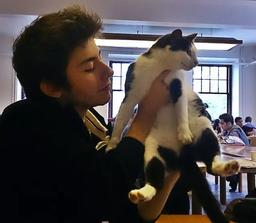| Question | Answer |
|---|---|
| bark! | hav! The noise a dog makes. |
| to bark | havlamak |
| When the dog barked, Eylem got scared. | Köpek havlayınca Eylem korktu. |
| move, movement, motion | hareket |
| to chuckle, to giggle | kıkırdamak |
| When they showed the dance move that they recently learned, we all chuckled. | Onlar yeni öğrendikleri dans hareketini gösterince hepimiz kıkırdadık. |
| [Lit.] Call when you arrive. | Varınca ara. |
| Does it hurt when I touch here? | Buraya dokununca acıyor mu? |
| to collapse, to cave in | çökmek |
| earthquake | deprem |
| tent | çadır |
| When their home collapsed in the earthquake, they stayed in the tent. | Depremde evleri çökünce, çadırda kaldılar. |
| ironCLOTHES | ütü |
| to iron | ütülemek |
| to dry offINTRANSITIVE | kurumak |
| When the laundry dries off, iron them. | Çamaşırlar kuruyunca ütüle. |
| to get used to, to habituate | alışmak |
| It's not hard when you get used to it. | Alışınca zor değil. |
| When I saw the nurse, I immediately fell in love. | Hemşireyi görünce hemen aşık oldum. |
| When the food spoiled, I threw it in the trash. | Yemekler bozulunca çöpe attım. |
Your questions are stored by us to improve Elon.io

